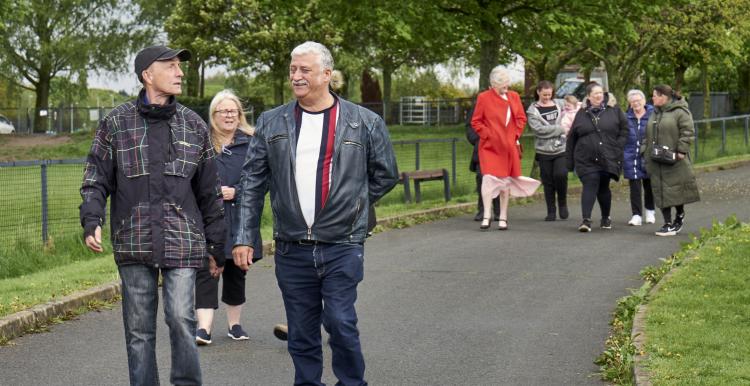Major Hertfordshire survey reveals critical gaps in local health and care services
It has also identified that access to, and availability of, healthcare services needs to be improved and residents want more information about local support.

Hertfordshire Health and Wellbeing Board has accepted our recommendations to use these insights to shape their forward plans, increase accountability and action and identify ways to engage with those who were under-represented in this latest work.
What did we do?
We were commissioned by the Integrated Care Partnership, a collaborative partnership of care and health organisations in Hertfordshire and West Essex, to undertake a widespread survey of residents and gather feedback about how local communities feel about their care, health and wellbeing.
What did people tell us?
Among the respondents, particular groups shared a high proportion of negative feelings and experiences - these included Broxbourne and Stevenage residents, communities with higher ethnic diversity, residents aged 18-44 and carers.
Our survey was based around six key priorities to address the health and care needs of the local population. The key findings within these priorities are detailed below:
- Priority 1 – Every child has the best start in life:
- 50% of parents and carers know how they can support their child’s development and where to find help
- Around a third of parents and carers expressed need for more information and support.
- Priority 2 – Support our residents and communities to be healthy and sustainable:
- 50% of residents knew about - and could afford - local social groups, activities, opportunities to learn and volunteer
- More than a quarter wanted improved accessiblity
- Over 70% felt safe and part of their community
- Less than one in ten felt negatively about their local community.
- Priority 3– Support our residents to maintain healthy lifestyles:
- More than 80% were positive about their health and wellbeing
- Over 50% felt supported with mental health
- A quarter didn’t feel supported by community services to stay healthy and change their behaviour for the better.
- Priority 4 – Enable our residents to age well and support people living with dementia:
- Over 75% knew how to plan for their old age, live independently and were treated with respect by friends, family and carers
- 45% felt supported to think about their future
- 39% felt supported with their end of life wishes.
- Priority 5 – Improve support for people living with life-long conditions, long-term conditions, physical disabilities, and their families:
- Half felt in control of their care and knew where to get help
- The other half wanted services joined-up to improve support
- A quarter feel they don’t see the right professionals, don’t work together and are not supported to manage their condition or disability.
- Priority 6 - Improve our residents’ mental health and outcomes for those with learning disabilities, autism and neurodiversity:
- Only 13% of residents felt supported and understood by professionals and struggled to understand and manage their own needs
- More than 50% reported receiving no support for neurodiversity, with many calling for improved diagnosis pathways and post-diagnostic support.
What happens next?
We have received commitment from Hertfordshire County Council’s Health and Wellbeing Board that our findings will feed into their future plans and the work of individual partners and services represented on that board. They have also approved our recommendations and will take them forward.
Priorities five and six received the most negative responses in our survey, so we have advised the Health and Wellbeing Board to focus on these.
In addition to this, we have asked them to consider the following:
- Consider who would be responsible for addressing the challenges outlined by those who reported worse health outcomes and experiences for people with long-term conditions and/or neurodiversity?
- How to enable targeted engagement with groups not represented in the survey, or those with poorer health outcomes and experiences?
- Ensure any additional engagement undertaken is accessible (for example providing materials in Easy Read, different languages, British Sign Language), so a wider range of communities can share their views.
- How can the insights from this survey be shared with Hertfordshire residents to highlight how the Health and Wellbeing Board is listening and acting upon what they have been told?


